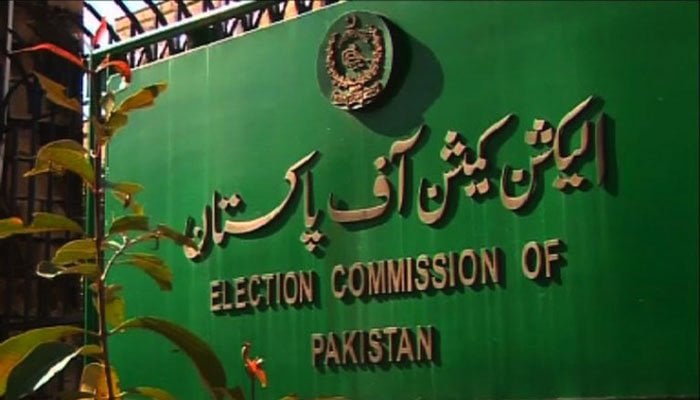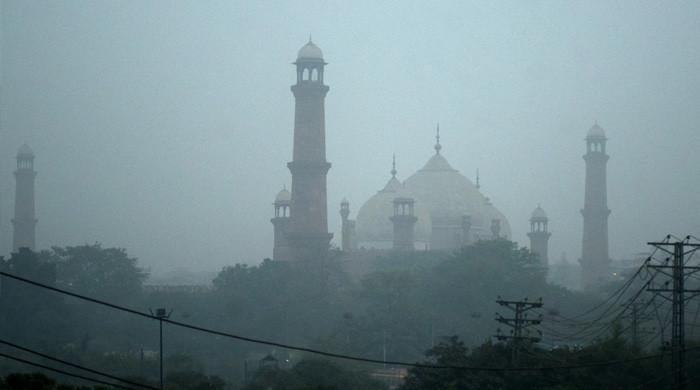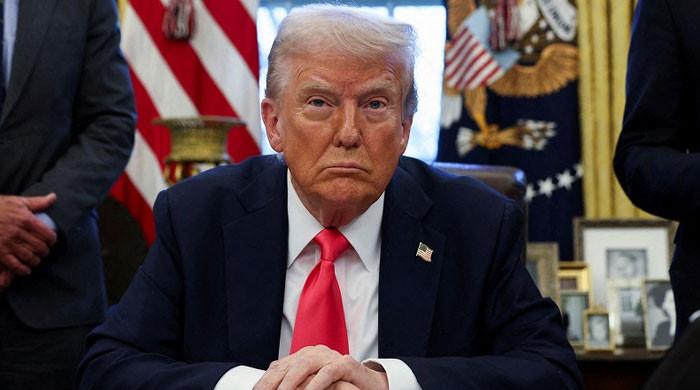Is the government’s new election bill defanging an independent ECP?
Election Commission of Pakistan examines 72 clauses of Bill, objects to 44 amendments proposed by government
June 16, 2021

The government’s new Election (Amendment) Bill 2021 has been passed by the National Assembly and is now on its way to the Senate.
But before the Assembly voted on the bill, the Election Commission of Pakistan (ECP) examined 72 clauses of the Bill and objected to 44 amendments proposed by the government.
An ECP official tells Geo.tv that its proposed changes were not incorporated in the final bill.
What were the major objections?
Election Bill 2021:
The new Bill states that only a Returning Officer can reject a ballot paper at the time of consolidation of results.
ECP’s objection:
The ECP states that this new provision takes away the power from a presiding officer to reject a ballot paper, when in practice, the presiding officer was authorized under Section 90(8) of the Election Act 2017 to exclude a vote from count if it appeared doubtful.
Election Bill 2021:
The Bill reduces the period given to the ECP to declare an election void, in case of grave illegalities.
The Commission earlier had 60 days to conduct an inquiry and declare a poll void, but the new Bill reduces the probe period to 30 days instead.
ECP’s objection:
The proposed amendment, argues the ECP, seeks to reduce the inquiry period from 60 days to 30 days which shall practically render the holding of an inquiry impossible.
Election Bill 2021:
The Bill insists that complaints by any person against the action of a political party or a candidate, who has violated a Code of Conduct, be made to the ECP before the day of the poll. The previous Act did not have any such time bar.
ECP’s objection:
In response, the ECP states that the redressal of a complaint is a fundamental right which should not be restricted.
Election Bill 2021:
The new Bill insists that the delimitation of constituencies be on the basis of equal number of voters in every constituency of a province.
ECP’s objection:
The ECP states that this amendment is in conflict with Article 51 of the Constitution, which provides that the allocation of seats shall be made on the basis of population, not the basis of voters.
“The amendment will result in enhancement of seats in urban areas due to temporary addresses of voters …. This may lead to resentment in underdeveloped areas,” it adds.
Election Bill 2021:
The new Bill has taken away from the ECP the power to:
- appoint registration officers
- preparation of preliminary electoral rolls
- appointment for revising officers
- transfer of name from one electoral area to another
- inquiry into claims and objections
- revision of electoral rolls
- sharing of information with NADRA.
ECP’s objection:
The ECP states that periodic revision of electoral rolls is one of the primary duties of the ECP under the constitution, adding that the “basic duty of the ECP” has been taken away from the ECP and handed over to NADRA, which is working under the administrative control of the federal government.
It goes on that taking away its powers to appoint registration officers will “render the Commission powerless.”
Election Bill 2021:
Under the new Bill, NADRA will send information of a new card holder to the ECP to register as a fresh voter. But now, the voters will be registered in an electoral area which is located within the jurisdiction of the office of the National DataBase and Registration Authority.
ECP’s objection:
The proposed amendment, states the ECP, will lead to a shift in power of the registration of a voter to NADRA. It adds that giving power to NADRA to assign electoral areas is tantamount to giving NADRA the power to register voters when it is an exclusive power of the ECP under the Constitution.
Election Bill 2021:
As per the new Bill, information regarding the death of a person will be submitted to NADRA.
ECP’s objection:
The ECP states that this amendment seeks to give the right to correction of electoral rolls to NADRA and “further empowers it [NADRA] despite the fact that NADRA has no constitutional mandate to prepare electoral rolls.”
Election Bill 2021:
The amendment allows a candidate to challenge before the ECP the appointment of a polling officer.
ECP’s objection:
To this the ECP states that the amendment will open doors of unlimited challenges as no candidate will be satisfied with the appointment of a polling staff. Adding that the filing of objection has already been provided for in the 2017 election law.
Election Bill 2021:
The new law insists that no official working in a constituency shall be appointed polling staff.
ECP’s objection:
To which the ECP states that that is not feasible, as almost half the polling staff is female and it will be difficult for them to stay the night in far flung areas.
Election Bill 2021:
The bill states that in case a person is physically impaired or cannot use stairs, the polling staff must provide him/her appropriate facilities.
ECP’s objection:
The ECP simply states that the amendment is not supported without an explanation.
Election Bill 2021:
The Act calls for extending the right to vote to overseas Pakistanis.
ECP’s objection:
The ECP responds that the amendment does not provide as to how the technical efficacy, secrecy, security and financial feasibility will be finalized to give overseas Pakistanis voting rights.
Adding that a separate legislation is necessary to provide for this, which should answer if separate seats will be allocated to expats? Will polling stations be established for them abroad or online? How will their votes be counted? What would be the mechanism of dispute resolution?
Election Bill 2021:
The new Bill insists that political parties shall submit their final priority list for reserved seats three days after the general election.
ECP’s objection:
This the ECP notes will make it impossible for it to declare election results on all seats, including reserved, 14 days after the polls, which is a requirement of the Constitution.
Election Bill 2021:
The new amendment adds that the election for the members of the senate be held by open ballot.
ECP’s objection:
To which the ECP states that the matter should be seen in context of the verdict of the Supreme Court last year.











